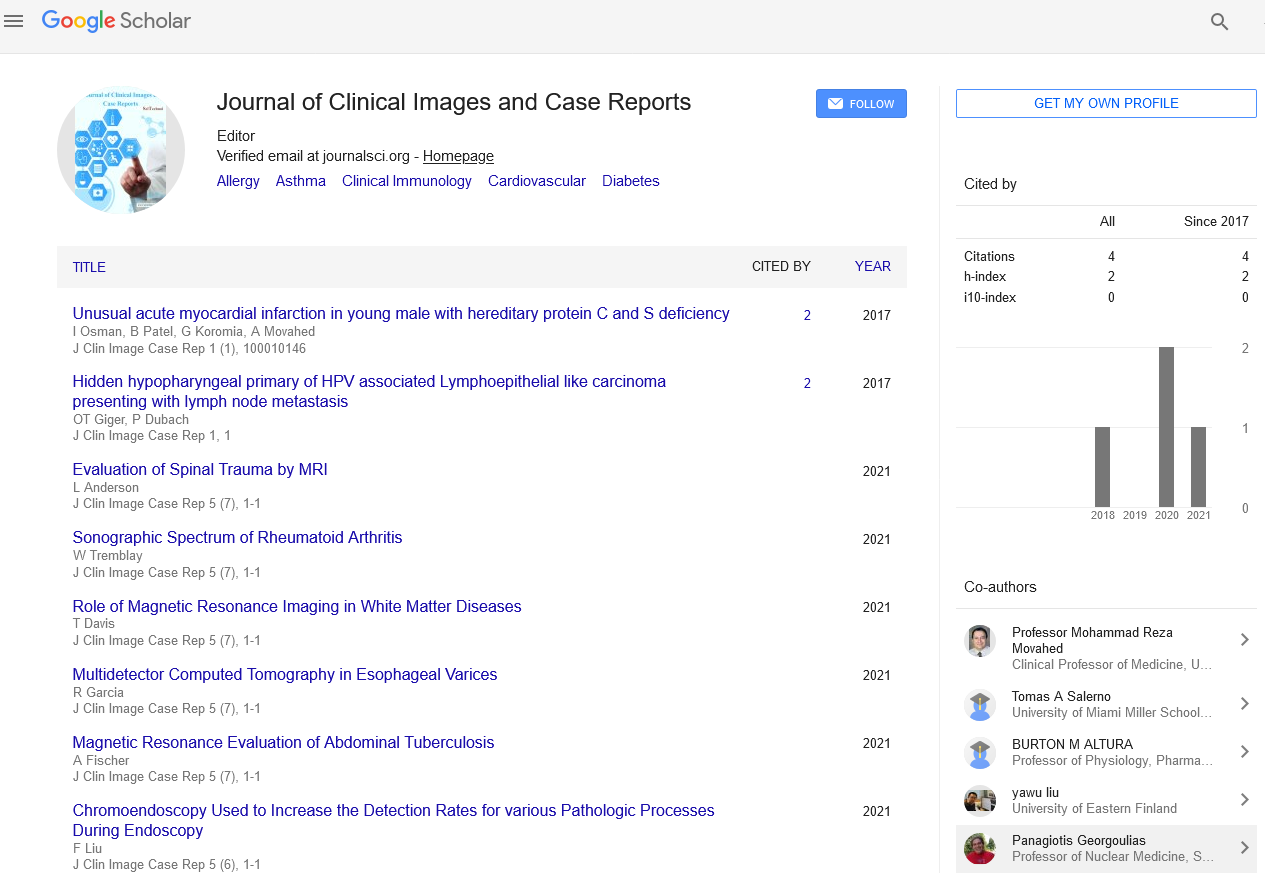Perspective, J Clin Image Case Rep Vol: 7 Issue: 5
Atypical Presentation of a Rare Autoimmune Disorder: Subacute Sclerosing Panencephalitis (SSPE)
Wook Kim*
Department of Neurology, Marmara University of Medicine, Istanbul, Turkey
*Corresponding Author: Wook Kim
Department of Neurology, Marmara
University of Medicine, Istanbul, Turkey
E-mail: wook123kim@gmail.com
Received date: 25 September, 2023, Manuscript No. CICR-23-118431;
Editor assigned date: 27 September, 2023, PreQC No. CICR-23-118431 (PQ);
Reviewed date: 11 October, 2023, QC No CICR-23-118431;
Revised date: 18 October, 2023, Manuscript No. CICR-23-118431 (R);
Published date: 25 October, 2023, DOI: 10.4172/CICR.1000269.
Citation: Kim W (2023) Atypical Presentation of a Rare Autoimmune Disorder: Subacute Sclerosing Panencephalitis (SSPE). J Clin Image Case Rep 7:5.
Description
Subacute Sclerosing Panencephalitis (SSPE) is a rare and devastating autoimmune disorder caused by persistent infection with the measles virus. It typically presents with characteristic neurological symptoms in children and young adults. Here, we report an atypical case of SSPE in a 19-year-old patient, presenting with psychiatric symptoms and behavioral changes, leading to a diagnostic challenge. This case highlights the importance of considering SSPE even in the absence of classic neurological signs, particularly in regions with a low measles vaccination rate.
Subacute Sclerosing Panencephalitis (SSPE) is an exceptionally rare, progressive, and ultimately fatal autoimmune disorder caused by persistent infection with the measles virus. It primarily affects children and young adults and is characterized by a wide range of neurological symptoms, such as myoclonic jerks, seizures, cognitive decline, and motor dysfunction.
The classic presentation of SSPE includes neurological deterioration, but the initial symptoms can be variable, leading to diagnostic challenges. We present a case of SSPE in a 19-year-old patient who initially manifested with psychiatric and behavioral changes, shedding light on the atypical presentation of this devastating disorder.
A 19-year-old previously healthy male was brought to the emergency department by his family due to a sudden onset of behavioral changes and psychosis-like symptoms. According to his family, the patient had been showing personality changes over the preceding four months, characterized by social withdrawal, decreased verbal communication, and emotional lability.
During the week leading up to his hospital admission, the patient's behavior had further deteriorated, with episodes of agitation, insomnia, and hallucinations. Physical examination upon admission revealed disorganized behavior, incoherent speech, and auditory hallucinations. No focal neurological deficits were noted.
Given the abrupt onset of psychiatric symptoms, the initial working diagnosis was a primary psychiatric disorder. However, the presence of a fever raised concerns of an underlying infectious or inflammatory process.
Laboratory tests, including complete blood counts, comprehensive metabolic panel, and Cerebrospinal Fluid (CSF) analysis, were within normal limits. An Electroencephalogram (EEG) demonstrated diffuse slowing of background activity with intermittent bursts of high-voltage, irregular, and disorganized slow waves, indicative of diffuse encephalopathy.
Subsequent Magnetic Resonance Imaging (MRI) of the brain showed bilateral symmetric hyperintensities involving the deep white matter on T2-weighted and Fluid-Attenuated Inversion Recovery (FLAIR) sequences. These findings were not specific, but in the context of the clinical presentation, SSPE was considered as a potential diagnosis.
Serum and CSF measles antibody titers were obtained. Elevated titers of measles IgG in both serum and CSF were observed, strongly supporting the diagnosis of SSPE. No history of measles vaccination was reported.
Despite the diagnosis, the patient's condition continued to deteriorate. He developed myoclonic jerks, generalized seizures, and a profound loss of cognitive and motor functions. Treatment options were limited, and the patient's family elected for palliative care. The patient passed away a few months after the diagnosis was confirmed.
Discussion
Subacute Sclerosing Panencephalitis is a rare and severe autoimmune disorder that results from persistent infection with the measles virus. Typically, it affects children and young adults and progresses through distinct stages, including behavioral and cognitive changes, myoclonic jerks, generalized seizures, and severe motor dysfunction. Diagnosis is primarily based on clinical presentation, supported by elevated measles antibody titers in both serum and cerebrospinal fluid.
The classic presentation of SSPE includes characteristic neurological symptoms, which were initially absent in this case. The patient's primary manifestation was psychiatric and behavioral changes, which led to a diagnostic challenge. The presence of fever, encephalopathy on EEG, and typical white matter changes on brain MRI ultimately directed the diagnostic workup toward SSPE.
It's worth noting that, in regions with low measles vaccination rates, SSPE remains a potential concern. Measles infection is preventable through vaccination, and high vaccination coverage is important in reducing the risk of SSPE.
Conclusion
This case underscores the atypical presentation of Subacute Sclerosing Panencephalitis (SSPE) and its potential to manifest with psychiatric and behavioral changes in the absence of classic neurological symptoms. A high index of suspicion is required to consider SSPE, especially in regions with low measles vaccination rates. Prompt recognition and diagnosis are essential for ensuring appropriate care and counseling for affected patients and their families.
 Spanish
Spanish  Chinese
Chinese  Russian
Russian  German
German  French
French  Japanese
Japanese  Portuguese
Portuguese  Hindi
Hindi 